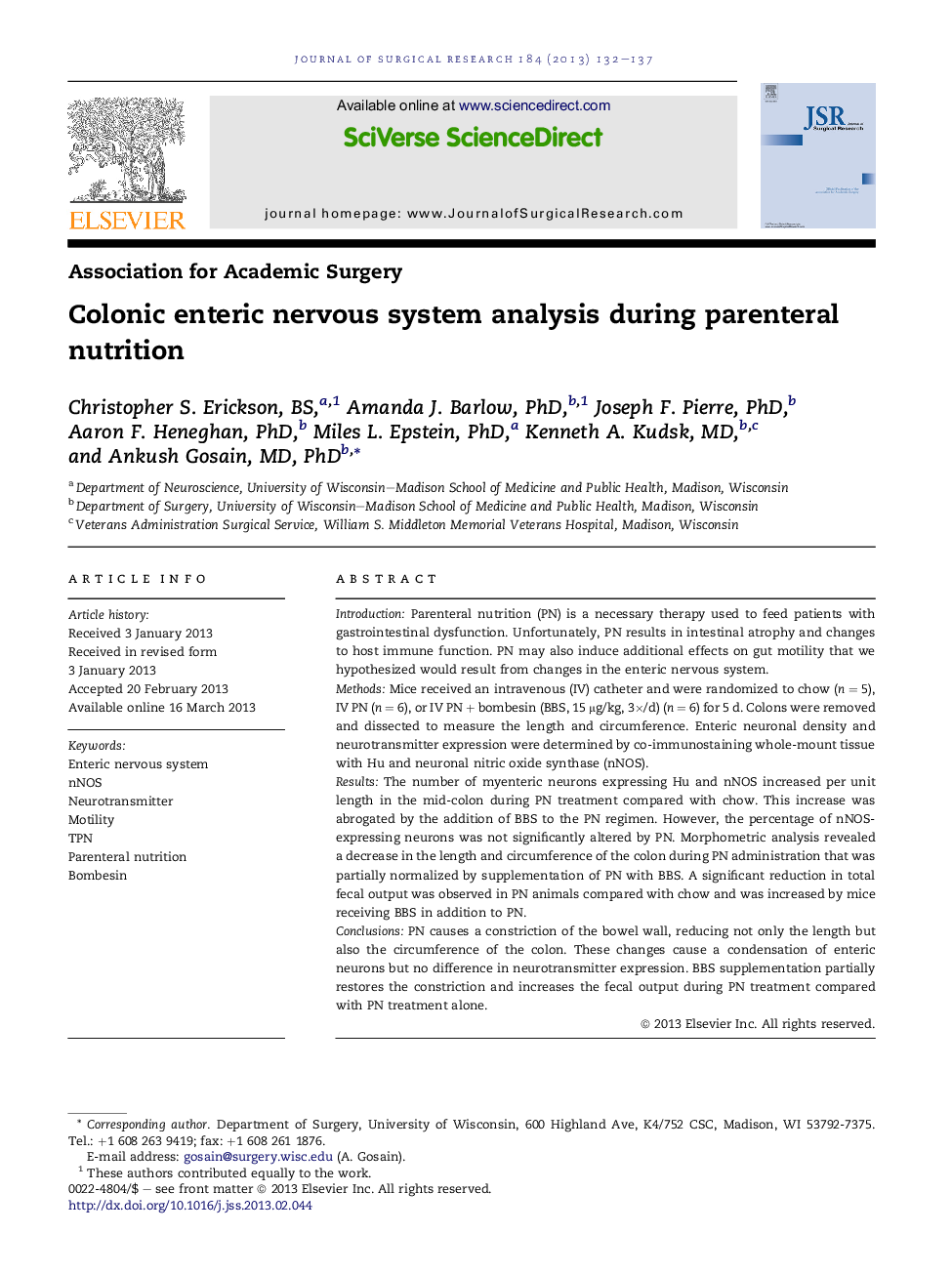| Article ID | Journal | Published Year | Pages | File Type |
|---|---|---|---|---|
| 4300581 | Journal of Surgical Research | 2013 | 6 Pages |
IntroductionParenteral nutrition (PN) is a necessary therapy used to feed patients with gastrointestinal dysfunction. Unfortunately, PN results in intestinal atrophy and changes to host immune function. PN may also induce additional effects on gut motility that we hypothesized would result from changes in the enteric nervous system.MethodsMice received an intravenous (IV) catheter and were randomized to chow (n = 5), IV PN (n = 6), or IV PN + bombesin (BBS, 15 μg/kg, 3×/d) (n = 6) for 5 d. Colons were removed and dissected to measure the length and circumference. Enteric neuronal density and neurotransmitter expression were determined by co-immunostaining whole-mount tissue with Hu and neuronal nitric oxide synthase (nNOS).ResultsThe number of myenteric neurons expressing Hu and nNOS increased per unit length in the mid-colon during PN treatment compared with chow. This increase was abrogated by the addition of BBS to the PN regimen. However, the percentage of nNOS-expressing neurons was not significantly altered by PN. Morphometric analysis revealed a decrease in the length and circumference of the colon during PN administration that was partially normalized by supplementation of PN with BBS. A significant reduction in total fecal output was observed in PN animals compared with chow and was increased by mice receiving BBS in addition to PN.ConclusionsPN causes a constriction of the bowel wall, reducing not only the length but also the circumference of the colon. These changes cause a condensation of enteric neurons but no difference in neurotransmitter expression. BBS supplementation partially restores the constriction and increases the fecal output during PN treatment compared with PN treatment alone.
